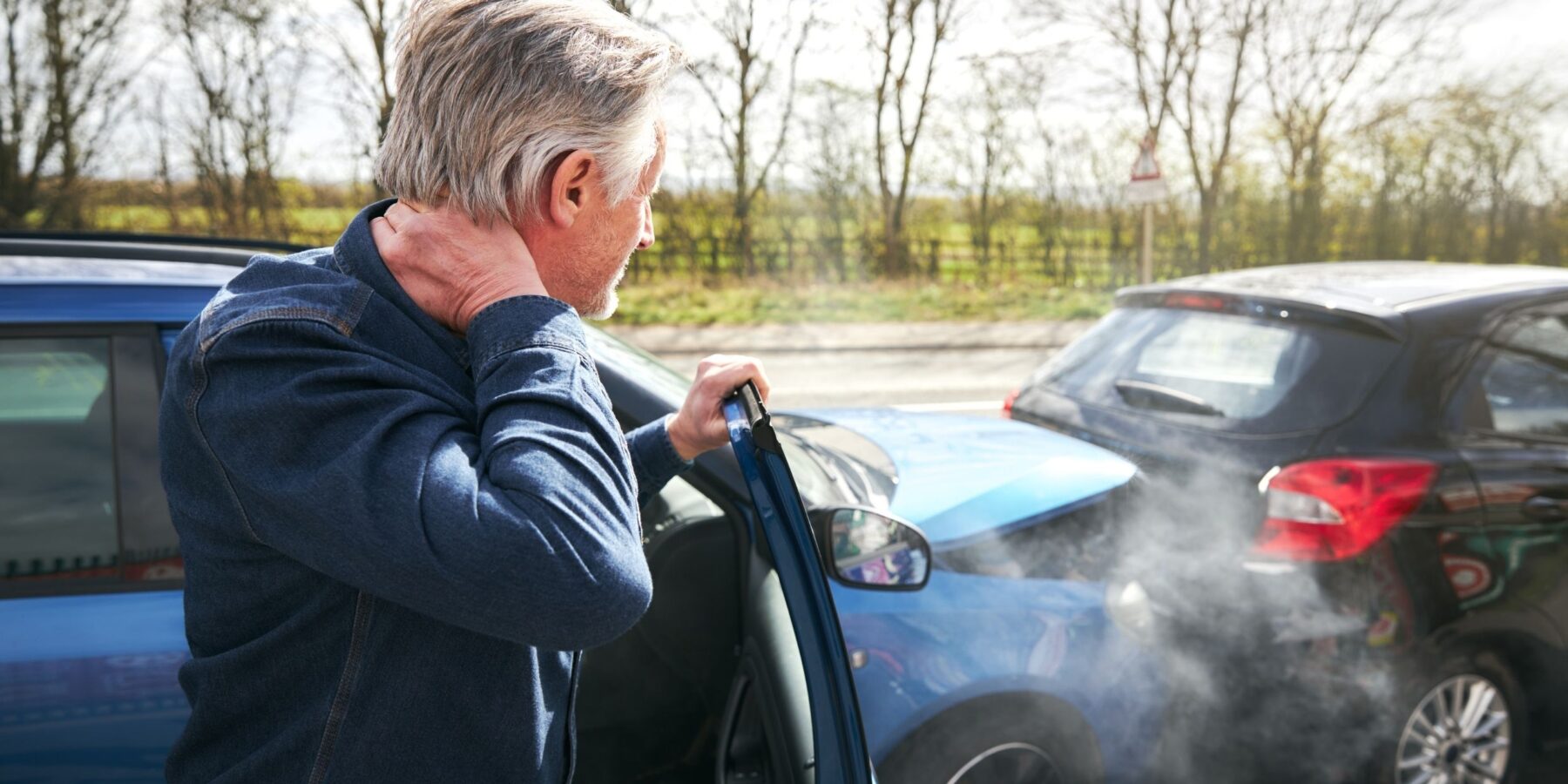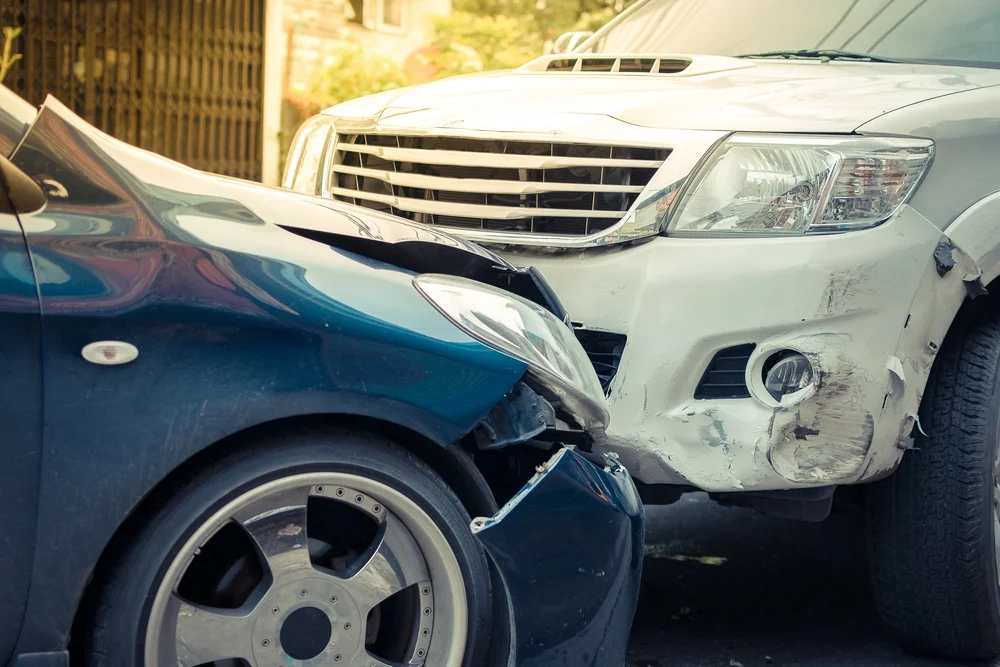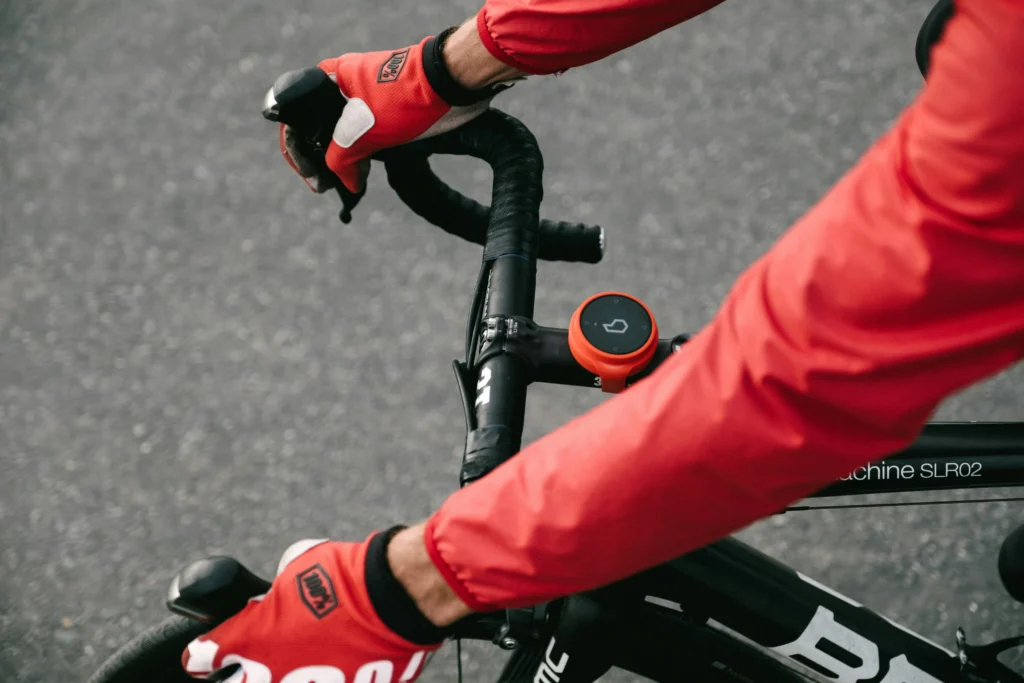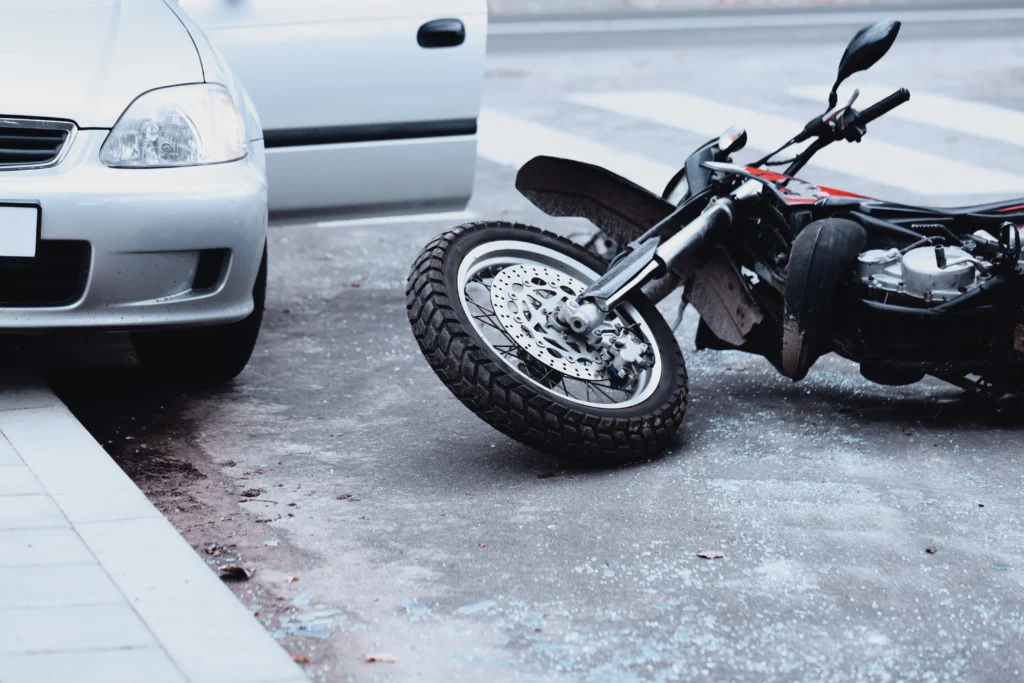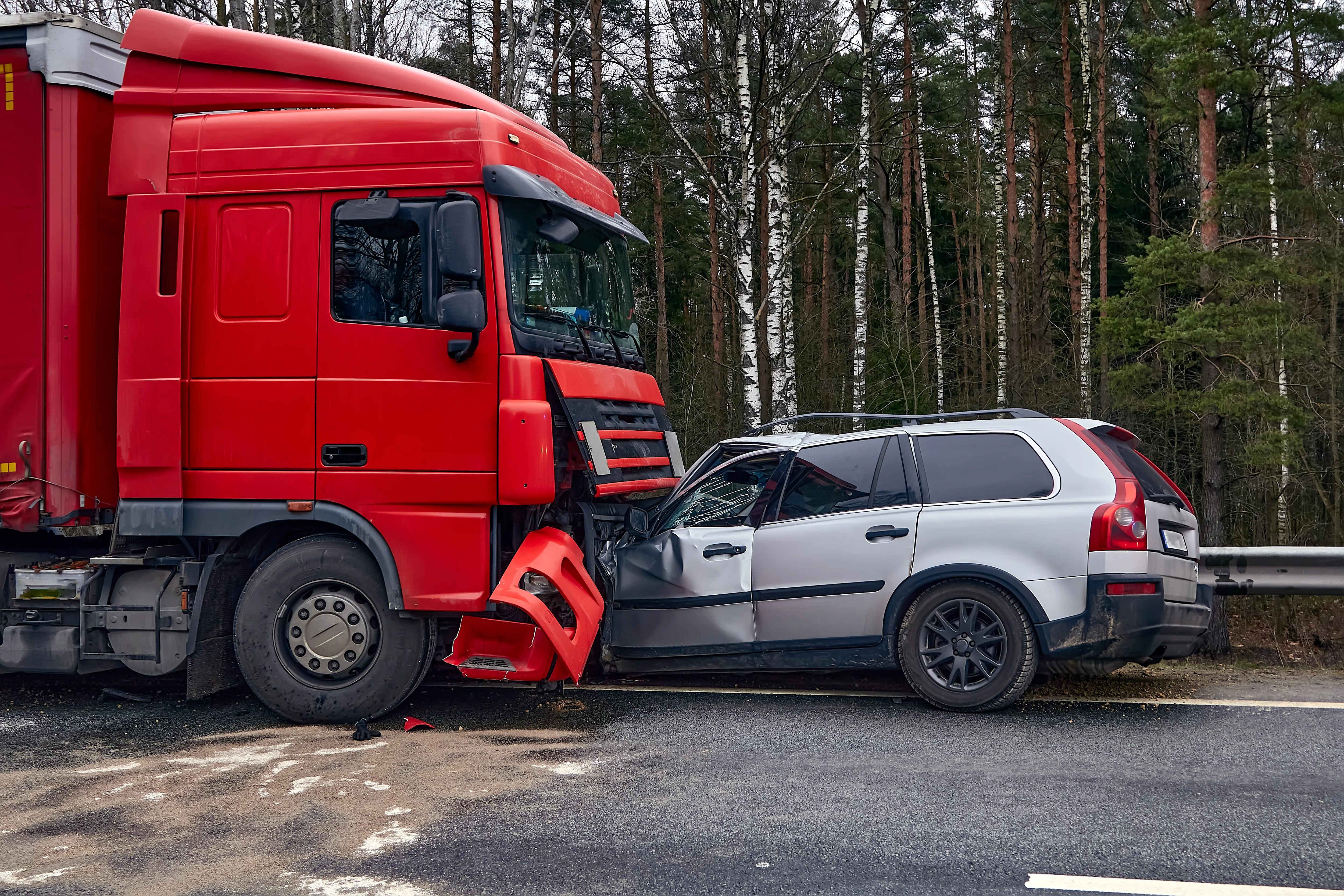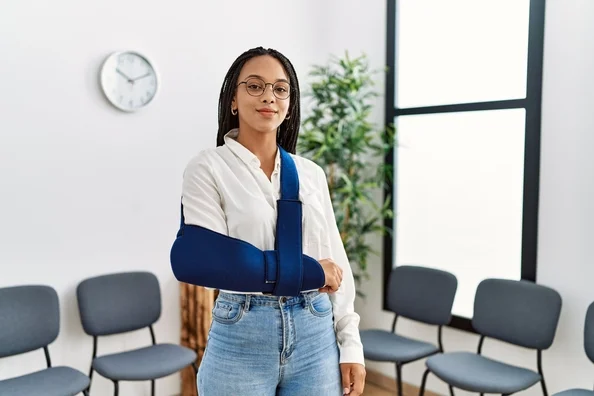Bernard Law Renton Rideshare Attorneys Are Ready to Help After an Accident
Rideshare services like Uber and Lyft offer convenient transportation across Renton, but when accidents happen, the consequences can be anything but convenient. Whether you were injured as a rideshare passenger, hit by a rideshare driver, or driving for a rideshare platform yourself, these collisions raise complex legal questions that most people are unprepared to answer. Who is liable? Which insurance policy applies? And how do you secure the compensation you need when corporate insurers are involved?
At Bernard Law Group, we help victims of Renton rideshare accidents navigate these challenges with clarity, confidence, and aggressive legal advocacy. Our experienced personal injury attorneys understand how Washington law treats Uber and Lyft crashes differently from traditional car accidents, and we’re here to protect your rights every step of the way.
If you or someone you love was hurt in a rideshare collision in Renton, do not delay. Call us at (206) 312-3908 or reach out through our contact page to schedule your free consultation. We never charge legal fees unless we win your case.
Understanding Liability and Insurance Coverage in Renton Rideshare Accidents
Rideshare accidents in Renton involve a complex interplay between state law, company insurance policies, and individual driver liability. Unlike traditional car accidents, where fault and coverage tend to be straightforward, rideshare collisions require a detailed analysis of when the crash occurred, what the driver was doing, and whether the rideshare app was active. Determining who is financially responsible for your injuries depends on these factors and more.
At Bernard Law Group, we untangle these legal complications to help victims pursue every dollar they are owed. Whether your case involves a distracted Uber driver, an underinsured Lyft operator, or a multi-vehicle pileup involving a rideshare vehicle, our attorneys know how to navigate the insurance claims process, prove liability, and hold all responsible parties accountable.
To learn more about how insurance coverage works in rideshare accidents, visit the Insurance Information Institute and the National Association of Insurance Commissioners.
When the Rideshare Driver Is Logged Out of the App
If a rideshare driver causes an accident in Renton while the Uber or Lyft app is off, they are treated like any other private driver under Washington law. In this case, the driver’s personal auto insurance policy is the only coverage available for injury victims. This often creates challenges, especially when the driver has minimum liability limits that do not cover serious medical expenses or long-term damages.
Under Washington’s mandatory auto insurance law, codified in RCW § 46.30.020, all drivers must carry a minimum of $25,000 in bodily injury coverage per person and $50,000 per accident. However, this is rarely sufficient in a crash involving multiple injuries or permanent harm.
When the Driver Is Logged Into the App But Has No Passenger
The moment a rideshare driver logs into the Uber or Lyft platform and starts waiting for a ride request, additional insurance coverage becomes available. At this stage, both companies provide contingent liability insurance, which activates if the driver’s personal coverage is insufficient or denied.
According to Uber’s official insurance summary, which you can review on the Uber Insurance Overview, drivers are covered for up to $50,000 per person and $100,000 per accident for bodily injury, along with $25,000 in property damage. Lyft outlines similar coverage on their Lyft Insurance Page.
However, these limits are still lower than those in place during active rides, and victims may face delays or denials if the driver was not actively en route to a passenger at the time of the crash.
Full Commercial Coverage During Active Rides
Once the driver accepts a ride request or has a passenger in the vehicle, Uber and Lyft provide up to $1 million in third-party liability coverage. This is among the highest policy limits available in any consumer transportation setting. If you were injured as a rideshare passenger or hit by a driver during an active ride, this full policy is likely in effect.
To learn more about how this coverage applies, visit the National Conference of State Legislatures for a detailed overview of state-level rideshare insurance laws.
Rideshare Insurance vs. Personal Auto Policies
One of the most important distinctions in a Renton rideshare case is the relationship between the driver’s personal insurance and the rideshare platform’s commercial policy. Many personal policies contain “business use exclusions,” which may allow insurers to deny coverage if the driver was using the vehicle for profit.
This creates gaps in coverage that only a skilled personal injury lawyer can identify and overcome. According to the Washington State Office of the Insurance Commissioner, rideshare drivers in Washington are urged to purchase supplemental or hybrid policies, but many still rely solely on Uber or Lyft’s tiered coverage.
When these gaps create uncertainty, we gather policy documents, examine trip data, and request app logs to determine exactly which coverage applied at the moment of impact.
What Happens in Multi-Vehicle Collisions Involving Rideshare Drivers
Multi-vehicle accidents involving Uber or Lyft drivers in Renton often complicate liability. These incidents frequently occur in busy areas such as Rainier Avenue South, Benson Drive South, or during rush hour on I-405. When multiple drivers share responsibility for a crash, Washington’s comparative fault laws come into play.
Under RCW § 4.22.005, Washington follows a “pure comparative fault” rule. This means that each party is responsible for their percentage of fault, and your compensation may be reduced accordingly. If a rideshare driver is found 70 percent at fault and another driver 30 percent, each party’s insurance carrier contributes proportionally.
Understanding how these percentages affect your recovery requires a detailed investigation. The Washington Traffic Safety Commission offers insight into crash patterns and fault in multi-vehicle collisions, which can be helpful in understanding broader trends. Visit the Washington Traffic Safety Commission to learn more.
What to Do If the At-Fault Driver Is Uninsured or Underinsured
Unfortunately, not every driver on Renton’s roads carries sufficient insurance. If you were injured by a rideshare driver with inadequate coverage, you may be able to file a claim under Uber or Lyft’s uninsured/underinsured motorist (UM/UIM) coverage. Both platforms offer this protection during active rides, but not during offline or standby periods.
The National Highway Traffic Safety Administration (NHTSA) warns that uninsured drivers remain a serious issue nationwide, and rideshare platforms play a critical role in extending financial protection to victims. If UM/UIM coverage applies, it can help cover medical costs, lost wages, and future care.
We help clients explore all sources of recovery, including their own UM policies if rideshare coverage does not apply. For additional information, the Washington State Bar Association provides resources on how to pursue claims involving underinsured motorists.
Common Types of Rideshare Accidents in Renton and What Causes Them
Rideshare accidents in Renton occur under a wide range of circumstances. These collisions may involve Uber or Lyft vehicles carrying passengers, waiting for ride requests, or simply navigating congested city streets. From rear-end crashes to pedestrian strikes, the nature of the accident often dictates the severity of the injuries and the complexity of the insurance process. Understanding how these crashes happen is crucial not only for prevention but also for proving liability in a personal injury case.
As rideshare usage increases across King County, particularly in high-traffic zones like downtown Renton, The Landing shopping area, and Grady Way, so does the frequency of collisions involving Uber and Lyft drivers. If you’ve been injured in one of these crashes, the legal team at Bernard Law Group is prepared to investigate the cause, identify all liable parties, and pursue maximum compensation on your behalf.
To explore crash statistics in your area, the Washington State Department of Transportation offers a crash data portal with interactive tools and annual collision summaries.
Rear-End Collisions Involving Distracted Rideshare Drivers
Rear-end crashes are one of the most common accident types involving rideshare drivers. Uber and Lyft drivers are constantly checking their phones for ride alerts, GPS navigation, or customer instructions. This behavior increases the likelihood of driver distraction, especially in stop-and-go traffic on roads like Rainier Avenue South or Benson Drive South.
The National Highway Traffic Safety Administration (NHTSA) reports that distracted driving causes thousands of preventable fatalities each year and is a leading cause of rear-end crashes. When a rideshare driver fails to pay attention and slams into the back of another vehicle, both passengers and other motorists can suffer whiplash, back injuries, and head trauma.
Even a brief moment of inattention, like accepting a ride or checking directions, can lead to devastating consequences.
Side-Impact Crashes at Intersections in Renton
Intersections in Renton are hot spots for side-impact (T-bone) collisions involving Uber and Lyft vehicles. These crashes frequently occur when rideshare drivers make unsafe turns across traffic or try to beat red lights. Because drivers often rush to complete more rides and maximize earnings, they may misjudge gaps in traffic or ignore right-of-way rules.
The Federal Highway Administration (FHWA) has identified intersection safety as a national priority, noting that more than 50 percent of serious crashes occur at or near intersections. In Renton, intersections like Talbot Road South and South 43rd Street or Logan Avenue North and North 6th Street are common sites for these dangerous collisions.
Victims of side-impact crashes often suffer shoulder injuries, hip fractures, and traumatic brain injuries due to the limited protection offered by vehicle doors.
Pedestrian Collisions Involving Rideshare Vehicles
Rideshare drivers often operate in areas with heavy pedestrian foot traffic, such as Renton Transit Center or outside The Landing. When drivers pull over unexpectedly to drop off or pick up passengers, pedestrians can be caught off guard. In many tragic cases, pedestrians are struck while crossing at unmarked intersections or navigating dark, poorly lit sidewalks.
The Governor’s Highway Safety Association (GHSA) reports that pedestrian fatalities have surged in recent years, partially due to the growth of ridesharing traffic in urban areas. Drivers may focus more on GPS directions or passenger coordination than on spotting someone crossing the road.
In these situations, we work closely with crash reconstruction experts and access rideshare data to prove driver negligence and pursue damages for injured pedestrians or their families.
Left-Turn Accidents Caused by Inexperienced Drivers
Many Uber and Lyft drivers are not professionally trained and are unfamiliar with the neighborhoods they operate in. This lack of local knowledge contributes to crashes involving unsafe left turns, especially in high-traffic corridors like Southwest Sunset Boulevard or Oakesdale Avenue Southwest. A rideshare driver may misjudge the speed of oncoming traffic or attempt a turn at an unsignalized intersection, resulting in a catastrophic impact.
According to the Insurance Institute for Highway Safety (IIHS), improper left turns account for a significant number of urban crashes. Because these accidents typically involve angle collisions, the risk of serious injury or death is high, particularly for vehicle occupants on the side of impact.
If you or a loved one was injured in a left-turn crash with a rideshare vehicle, immediate legal action may be necessary to preserve critical evidence and ride data.
Rideshare Drivers Struck While Waiting at the Curb
Not all rideshare accidents are caused by Uber or Lyft drivers. In many cases, they are the victims. For example, when a rideshare driver stops to pick up or drop off a passenger, they may be rear-ended by another vehicle. These parked or slowly moving vehicles are particularly vulnerable on narrow Renton streets, especially in residential neighborhoods or commercial zones with limited curb space.
In these scenarios, the at-fault driver’s insurance may apply, but Uber and Lyft’s coverage can also come into play if the app was active. The National Association of City Transportation Officials (NACTO) emphasizes that curb management and safe pick-up zones are essential to preventing these types of crashes.
Understanding who was at fault and what insurance coverage is active requires immediate evidence gathering and a detailed review of app activity.
Dooring Incidents Involving Cyclists
One of the most overlooked types of rideshare accidents in Renton involves cyclists who are injured when a passenger opens a car door into their path. Known as “dooring,” these incidents can send cyclists flying into traffic or onto the pavement with no warning. This often happens when passengers exit a rideshare vehicle without checking for approaching bikes, especially on roads like Houser Way North or Park Avenue North, which are popular with cyclists but lack protected bike lanes.
The League of American Bicyclists provides detailed information on how dooring happens and how cities can redesign streets to prevent it. While drivers and passengers can both be held liable for dooring injuries, Uber and Lyft may share liability if their apps fail to warn users about the presence of bike traffic.
In these cases, we build claims using street-level video footage, traffic reports, and expert testimony to establish negligence.
Serious Injuries Caused by Rideshare Accidents in Renton
The injuries suffered in Renton rideshare accidents are often more severe than those seen in standard collisions. This is because rideshare vehicles operate in high-traffic zones, navigate unpredictable urban environments, and frequently stop or turn without warning. Whether you were a passenger in an Uber, a pedestrian hit by a Lyft driver, or a cyclist forced off the road, the physical consequences can be catastrophic. These injuries result in long-term medical treatment, time away from work, and an uncertain financial future.
At Bernard Law Group, we have seen firsthand how a single crash can alter the course of a person’s life. We work closely with neurologists, orthopedic surgeons, and rehabilitation specialists to document the full scope of injury-related damages and pursue maximum compensation for every client.
For national statistics on injury severity and recovery timelines, visit the Centers for Disease Control and Prevention (CDC) Injury Center.
Traumatic Brain Injuries From Rideshare Collisions
Traumatic brain injuries (TBIs) are among the most common and devastating injuries suffered in rideshare accidents. These injuries may occur even in low-speed collisions if a passenger’s head strikes the seat, window, or dashboard. Because rideshare passengers often sit in the back without wearing seatbelts, the risk of head trauma is especially high.
According to the National Institute of Neurological Disorders and Stroke, TBIs can cause cognitive impairment, memory loss, mood disorders, and physical disabilities. In severe cases, victims may require surgery, lifelong care, or even remain in a coma. Imaging tools such as MRIs and CT scans are often necessary to confirm diagnosis.
If you suspect a brain injury after a crash, seek medical attention immediately. Early intervention is critical.
Spinal Cord Injuries and Paralysis
The violent force of a rideshare accident can compress, dislocate, or fracture the spine. These spinal cord injuries often result in partial or complete paralysis, depending on where the injury occurs along the vertebral column. A crash on I-405 or a sudden rear-end impact on Benson Road South can cause a passenger to suffer life-altering damage in a matter of seconds.
The Christopher & Dana Reeve Foundation explains how spinal trauma disrupts motor function, organ control, and independence. Renton accident victims with spinal cord injuries may need wheelchairs, home modifications, and in-home care for the rest of their lives.
Insurance companies often underestimate the cost of lifelong disability. That’s why it’s critical to have a legal team that works with life care planners and medical economists to ensure your future needs are accounted for.
Orthopedic Injuries Including Fractures and Joint Damage
Broken bones are extremely common in rideshare accidents, especially among backseat passengers thrown forward during impact. These fractures can involve the arms, ribs, pelvis, ankles, and legs. Victims may also suffer dislocated shoulders or torn ligaments, requiring surgery and extended rehabilitation.
According to the American Academy of Orthopaedic Surgeons (AAOS), fractures caused by auto collisions often result in long-term pain and limited mobility. In some cases, victims must undergo joint replacement surgery or physical therapy to regain function.
Recovery from orthopedic trauma can take months, and complications like infection or hardware failure may prolong treatment. These injuries are not only physically painful but also financially devastating due to mounting medical bills and missed work.
Internal Organ Damage and Hidden Trauma
Not all injuries are visible at the time of the crash. Internal bleeding, punctured lungs, and organ lacerations frequently occur in rideshare accidents when victims are struck by seatbelts, airbags, or blunt force trauma from surrounding objects. These injuries may not show symptoms immediately, which is why many patients deteriorate hours after the crash.
The National Library of Medicine stresses the importance of diagnostic imaging to detect internal injuries. Symptoms like abdominal pain, shortness of breath, or dizziness could indicate a life-threatening emergency.
After any significant crash, victims should undergo a thorough medical evaluation even if they feel “okay” at the scene. Delayed symptoms can result in missed diagnoses and worsened outcomes.
Facial Trauma and Dental Injuries
Rideshare crashes often cause injuries to the face and mouth, especially when passengers are not wearing seatbelts or are thrown into the back of the seats. Common injuries include jaw fractures, broken teeth, facial lacerations, and eye trauma. These injuries are particularly traumatic because they affect a person’s appearance, ability to eat and speak, and emotional well-being.
According to the American Association of Oral and Maxillofacial Surgeons (AAOMS), facial injuries require prompt treatment and may necessitate reconstructive surgery, dental implants, and long-term follow-up care.
Insurance companies rarely factor in the emotional impact of facial disfigurement unless pressed with strong medical and psychological documentation. Our firm works with plastic surgeons and psychologists to present these claims effectively.
Psychological Trauma and Post-Traumatic Stress Disorder
Survivors of rideshare collisions often suffer from post-traumatic stress disorder (PTSD), anxiety, and depression. These mental health conditions may arise immediately after the crash or develop over time. Common symptoms include nightmares, fear of riding in cars, emotional outbursts, and social withdrawal.
The American Psychological Association (APA) emphasizes that emotional trauma is just as real and damaging as physical injury. In Renton, where commuting and rideshare use are common, PTSD can make it difficult for survivors to resume daily life or return to work.
A successful personal injury claim should include compensation for therapy, medications, and the long-term psychological toll of the crash.
Speak With a Renton Rideshare Accident Lawyer Today
If you were injured in an Uber or Lyft accident in Renton, you do not have to face the legal system alone. Whether you were a passenger, pedestrian, cyclist, or driver, your case deserves immediate attention and experienced representation. At Bernard Law Group, we help rideshare accident victims pursue full compensation for their injuries, lost income, and emotional suffering. Our legal team investigates every detail, works with top medical experts, and fights to hold negligent parties and corporate insurers accountable.
Don’t let Uber, Lyft, or their insurance providers delay your recovery. With offices serving King County and beyond, our attorneys are ready to advocate for you from day one. We understand Washington’s evolving rideshare laws, and we know how to overcome the tactics insurers use to deny valid claims.
Call (206) 312-3908 or visit our contact page today to schedule your free consultation. We work on a contingency fee basis, which means you pay nothing unless we win your case. Let Bernard Law Group help you move forward with confidence, clarity, and the compensation you deserve.
Practice Areas
Trust Us With Your Personal Injury Claim
If you or a loved one have been injured, Bernard Law Group will fight for you every step of the way. We will give our all to secure the compensation you rightfully deserve.
Contact usfor a free consultation.
Phone: (206) 312-3908
